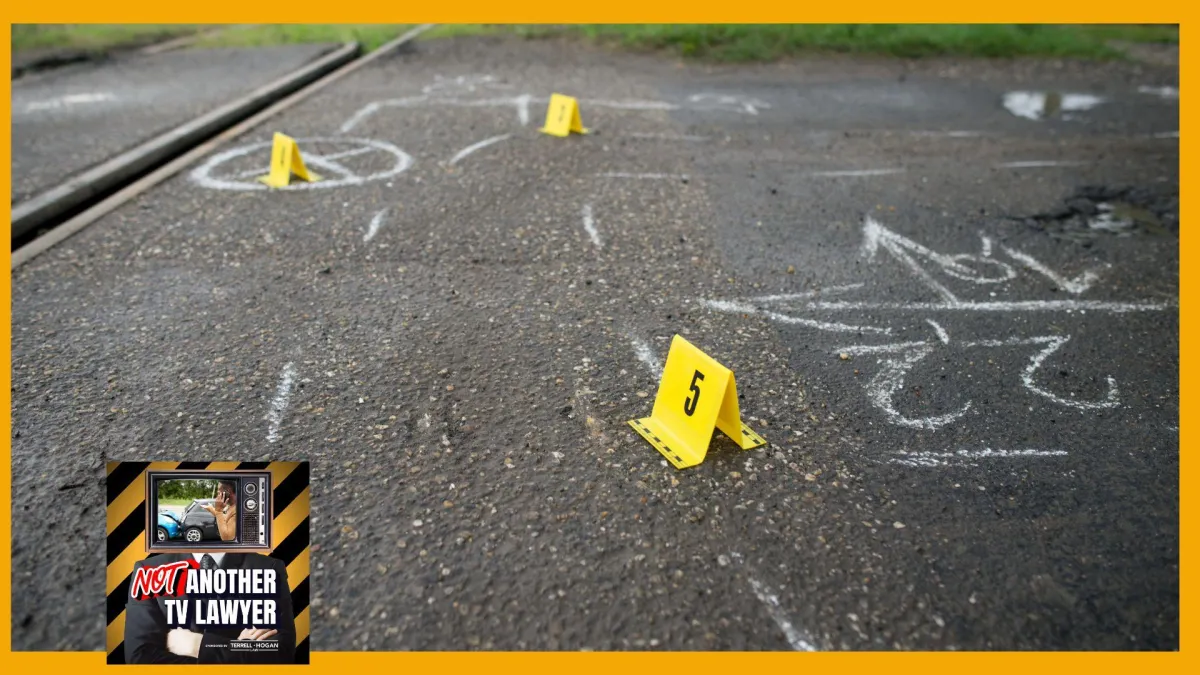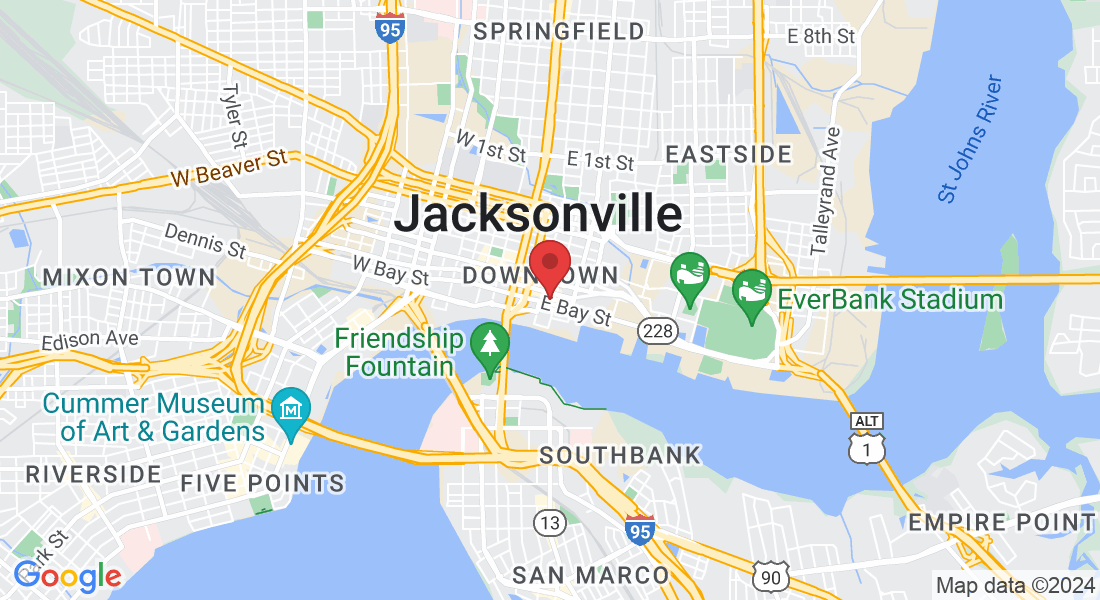— PORTFOLIO
Featured WORK
Celebrate Creativity: Showcasing our Client Work
At Mix Theory Studios, we take immense pride in showcasing the exceptional work we've done with our clients. From reimagining music albums to producing national Ad campaigns featured during the World Series, our portfolio reflects our commitment to quality and creativity. Each project is a testament to our collaborative approach and dedication to bringing our clients' visions to life. Join us in celebrating and envisioning your own project's potential.
Client Works

Accident Reconstruction
Understanding Crash Forensics
Traffic accidents are unfortunately common, and when they occur, they can disrupt lives, cause severe injuries, and even lead to fatalities. Investigating these incidents is essential for determining what happened, holding parties accountable, and preventing future accidents.
In cases of severe injury or fatalities, investigation reports play a crucial role in legal proceedings. The findings can influence outcomes in personal injury claims, insurance settlements, and criminal cases. Accurate and detailed reports are essential to ensure fair judgment and appropriate compensation.
Accident reconstruction experts, like this week's guest Dr. Brian Pfeifer of Quality Forensic Engineering LLC (Q Forensics), use physics and mathematics to model the accident, simulating speeds, angles, and forces involved. Reconstruction can involve specialized software and knowledge of vehicle mechanics.
Watch the Video
Episode 5: Accident Reconstruction with Brian Pfeifer, Ph.D., P.E.
In this episode of 'Not Another TV Lawyer,' hosts Chris Shakib and Jessica Hall from the Terrell Hogan law firm welcome Brian Pfeifer, Ph.D., P.E. from Quality Forensic Engineering LLC. The discussion covers the intricate work of forensic engineering and crash data analysis. Dr. Pfeifer explains how Q Forensics helps in reconstructing automobile accidents by gathering crucial data from various sources like airbag control modules and security footage. He also shares insights on how technology, including drones and computer simulations, has transformed the field over the years.
Video time-stamps are available at the end of this blog in the Episode Notes.
What is Crash Forensics?
Crash forensics is a specialized field that combines engineering expertise with advanced technology to uncover the truth behind vehicle collisions. When an accident occurs, it’s rarely a simple matter of "who hit whom"; instead, complex factors—ranging from road conditions and driver actions to vehicle mechanics and environmental influences—come into play.
Crash forensics experts meticulously piece together these elements to construct a clear, scientific picture of the events leading up to, during, and after a crash. This field not only helps to clarify liability and bring justice to affected parties but also contributes to broader efforts in improving road safety and preventing future accidents.
The Role of Q Forensics in Accident Reconstruction
Q Forensics is a forensic engineering firm specializing in accident investigations. Dr. Brian Pfeifer, CEO of Quality Forensic Engineering LLC (Q Forensics), explained, “We take our engineering knowledge and the tools we have as engineers to help understand and develop a theory of how a collision occurred and then be able to prove that.” His insights reveal how forensic engineers work to reconstruct accidents by analyzing everything from road conditions and vehicle damage to advanced data collected from within the vehicle itself.
By combining these various pieces of evidence, Q Forensics can provide a clear narrative of the accident, often using highly specialized tools and software to simulate the forces, speeds, and other variables involved in the crash. This comprehensive approach allows them to pinpoint contributing factors and establish liability with scientific accuracy, offering critical support in legal cases where justice hinges on a clear understanding of the incident.
Advancements in Vehicle Data Collection
One of the most impactful advancements in crash forensics has been the evolution of data collection technology in vehicles. According to Dr. Pfeifer, this shift began around 2012 when regulations by the National Highway Traffic Safety Administration required most vehicles to record critical data related to collisions. These event data recorders, often referred to as “black boxes,” capture vital information such as speed, braking, and steering actions before and during the crash.
“Even if the airbags don’t deploy, we can still retrieve this data,” Dr. Pfeifer noted, highlighting how the data can corroborate physical evidence and witness statements. This level of detail can reveal whether a driver braked suddenly, swerved, or took other actions that may have contributed to or mitigated the impact. With the help of modern tools, forensic engineers can build a much more detailed and accurate picture of the moments leading up to a collision.
The Importance of Timely Investigation
In any accident investigation, timing is critical. Evidence can deteriorate or disappear within hours or days, which is why forensic teams aim to reach the scene as quickly as possible. “It's important to preserve the vehicle if we can, but getting out to the scene is even more important because that information disappears very quickly,” Dr. Pfeifer explained.
From skid marks and road debris to environmental factors, such as weather conditions, many elements of an accident scene are time-sensitive. Documenting these details accurately requires prompt action, and with the help of drones and other technology, teams like Q Forensics can capture detailed aerial views of the scene. Drones provide a comprehensive perspective that helps investigators analyze everything from the positioning of vehicles to the surrounding landscape, adding a layer of depth to the investigation.
Cutting-Edge Technology: Drones and Security Footage
Advanced tools like drones and security footage have revolutionized the field of crash forensics. Drones allow for a detailed aerial overview of accident scenes, which is often crucial for understanding complex collisions. Additionally, security cameras in the area can provide critical evidence. “We can actually take that security video and break it down frame by frame and be able to do some analysis,” Dr. Pfeifer explained. These visual insights to include 3D modeling, simulation and animation provide a real-time look into the events leading up to and following a crash, helping to clarify discrepancies and piece together a precise timeline of events.
Extending Expertise Beyond Vehicle Crashes
While this episode primarily focused on motor vehicle crashes, Dr. Pfeifer shared that Q Forensics extends its expertise to other areas as well, including premises liability and product failure cases. “We look at it from both a code violation perspective and a biomechanical perspective,” he noted. This means that Q Forensics not only examines the physical evidence but also considers factors like safety regulations and biomechanics to assess whether an injury could have been prevented. Their broad expertise allows them to serve as key experts in various injury-related cases, from slip-and-fall incidents to mechanical failures.
Why Accurate Accident Investigations Matter
Accurate accident investigations are vital for determining liability, improving road safety, and providing closure for those affected by severe accidents. Detailed forensic analysis enables investigators to understand not just the what, but the why and how behind an accident. Yet, the real-world impact of crash forensics extends beyond legal cases.
This knowledge can also be instrumental in shaping policies, redesigning dangerous intersections, and even educating the public on safe driving practices. Through the data gathered, investigators and policymakers can identify trends, such as specific areas or driving behaviors that increase accident risk, and take proactive measures to prevent future collisions.
As technology advances, so does the precision with which forensic engineers can understand these incidents, making crash forensics a critical part of our road safety ecosystem and a fascinating field of employment for engineers and other experts like Q Forensics.
About our Guest

Brian Pfeifer, Ph.D., P.E.
Dr. Brian Pfeifer is an Engineering Expert with over 25 years of experience investigating thousands of cases involving a variety of forensic engineering issues. He is a leading expert in accident reconstruction, roadside safety, maintenance of traffic, commercial vehicle accidents, pedestrian accidents, bicycle accidents, and the analysis of mechanical systems and product failures.
Dr. Pfeifer has a strong background in the design, development, and implementation of roadside safety hardware including guardrails, bridge rails, and crash cushions. Over 33 patents have been filed worldwide on behalf of Dr. Pfeifer and associated colleagues who invented safer guardrail systems, vehicle storage systems, shipping container handling systems, and material handling and storage methods. He has also utilized his technical knowledge and understanding of patents to assist in a number of matters involving patent litigation.
Dr. Pfeifer has published numerous papers to various organizations, covering topics such as new guardrail systems, energy absorbing guardrail terminals, breakaway sign mechanisms, and material handling technology. He has shared his expertise with many organizations on topics including vehicle collisions, bicycle accidents, roadway construction zones, and accident reconstruction expert witness utilization.
Dr. Pfeifer is a registered Professional Engineer in eight states and he continues to refine his skills and knowledge of accident reconstruction and roadside safety by staying current with new technology and best practices. Dr. Pfeifer has extensive experience with providing deposition and trial testimony as an Engineering Expert.
AREAS OF EXPERTISE
Automobile Collisions
Tractor-Trailer Collisions
Guardrails / Bridge Rails
Construction Zones
Bicycle Accidents
Pedestrian Accidents
Motorcycle Accidents
Occupant Kinematics
Roadside Safety
Airbag Control Module (ACM) Analysis
Tractor Trailer Electronic Control Module (ECM) Analysis
Product Failure Analysis
Maintenance of Traffic (MOT) Evaluation
Restraint System Analysis
Patent Litigation Technical Analysis
For listeners interested in Q Forensics’ services, Dr. Pfeifer shared that they are available at 850-583-5540, by email at [email protected], or through their website, www.qforensics.com. Q Forensics’ expertise and dedication to forensic accuracy make them a valuable resource for anyone seeking clarity in accident or injury cases.
Episode Notes:
The episode highlights the importance of timely involvement of forensic experts in accident cases and touches upon other services offered by Q Forensics, such as premises liability and fire causation investigations.
00:00 Introduction to Not Another TV Lawyer
00:29 Meet Dr. Brian Pfeifer from Q Forensics
01:43 Understanding Q Forensics' Work
05:47 Advancements in Crash Data Collection
09:52 Importance of Early Involvement in Cases
12:29 Utilizing Technology in Accident Reconstruction
26:01 Beyond Auto Accidents: Other Services by Q Forensics
28:22 Conclusion and Contact Information

Accident Reconstruction
Understanding Crash Forensics
Traffic accidents are unfortunately common, and when they occur, they can disrupt lives, cause severe injuries, and even lead to fatalities. Investigating these incidents is essential for determining what happened, holding parties accountable, and preventing future accidents.
In cases of severe injury or fatalities, investigation reports play a crucial role in legal proceedings. The findings can influence outcomes in personal injury claims, insurance settlements, and criminal cases. Accurate and detailed reports are essential to ensure fair judgment and appropriate compensation.
Accident reconstruction experts, like this week's guest Dr. Brian Pfeifer of Quality Forensic Engineering LLC (Q Forensics), use physics and mathematics to model the accident, simulating speeds, angles, and forces involved. Reconstruction can involve specialized software and knowledge of vehicle mechanics.
Watch the Video
Episode 5: Accident Reconstruction with Brian Pfeifer, Ph.D., P.E.
In this episode of 'Not Another TV Lawyer,' hosts Chris Shakib and Jessica Hall from the Terrell Hogan law firm welcome Brian Pfeifer, Ph.D., P.E. from Quality Forensic Engineering LLC. The discussion covers the intricate work of forensic engineering and crash data analysis. Dr. Pfeifer explains how Q Forensics helps in reconstructing automobile accidents by gathering crucial data from various sources like airbag control modules and security footage. He also shares insights on how technology, including drones and computer simulations, has transformed the field over the years.
Video time-stamps are available at the end of this blog in the Episode Notes.
What is Crash Forensics?
Crash forensics is a specialized field that combines engineering expertise with advanced technology to uncover the truth behind vehicle collisions. When an accident occurs, it’s rarely a simple matter of "who hit whom"; instead, complex factors—ranging from road conditions and driver actions to vehicle mechanics and environmental influences—come into play.
Crash forensics experts meticulously piece together these elements to construct a clear, scientific picture of the events leading up to, during, and after a crash. This field not only helps to clarify liability and bring justice to affected parties but also contributes to broader efforts in improving road safety and preventing future accidents.
The Role of Q Forensics in Accident Reconstruction
Q Forensics is a forensic engineering firm specializing in accident investigations. Dr. Brian Pfeifer, CEO of Quality Forensic Engineering LLC (Q Forensics), explained, “We take our engineering knowledge and the tools we have as engineers to help understand and develop a theory of how a collision occurred and then be able to prove that.” His insights reveal how forensic engineers work to reconstruct accidents by analyzing everything from road conditions and vehicle damage to advanced data collected from within the vehicle itself.
By combining these various pieces of evidence, Q Forensics can provide a clear narrative of the accident, often using highly specialized tools and software to simulate the forces, speeds, and other variables involved in the crash. This comprehensive approach allows them to pinpoint contributing factors and establish liability with scientific accuracy, offering critical support in legal cases where justice hinges on a clear understanding of the incident.
Advancements in Vehicle Data Collection
One of the most impactful advancements in crash forensics has been the evolution of data collection technology in vehicles. According to Dr. Pfeifer, this shift began around 2012 when regulations by the National Highway Traffic Safety Administration required most vehicles to record critical data related to collisions. These event data recorders, often referred to as “black boxes,” capture vital information such as speed, braking, and steering actions before and during the crash.
“Even if the airbags don’t deploy, we can still retrieve this data,” Dr. Pfeifer noted, highlighting how the data can corroborate physical evidence and witness statements. This level of detail can reveal whether a driver braked suddenly, swerved, or took other actions that may have contributed to or mitigated the impact. With the help of modern tools, forensic engineers can build a much more detailed and accurate picture of the moments leading up to a collision.
The Importance of Timely Investigation
In any accident investigation, timing is critical. Evidence can deteriorate or disappear within hours or days, which is why forensic teams aim to reach the scene as quickly as possible. “It's important to preserve the vehicle if we can, but getting out to the scene is even more important because that information disappears very quickly,” Dr. Pfeifer explained.
From skid marks and road debris to environmental factors, such as weather conditions, many elements of an accident scene are time-sensitive. Documenting these details accurately requires prompt action, and with the help of drones and other technology, teams like Q Forensics can capture detailed aerial views of the scene. Drones provide a comprehensive perspective that helps investigators analyze everything from the positioning of vehicles to the surrounding landscape, adding a layer of depth to the investigation.
Cutting-Edge Technology: Drones and Security Footage
Advanced tools like drones and security footage have revolutionized the field of crash forensics. Drones allow for a detailed aerial overview of accident scenes, which is often crucial for understanding complex collisions. Additionally, security cameras in the area can provide critical evidence. “We can actually take that security video and break it down frame by frame and be able to do some analysis,” Dr. Pfeifer explained. These visual insights to include 3D modeling, simulation and animation provide a real-time look into the events leading up to and following a crash, helping to clarify discrepancies and piece together a precise timeline of events.
Extending Expertise Beyond Vehicle Crashes
While this episode primarily focused on motor vehicle crashes, Dr. Pfeifer shared that Q Forensics extends its expertise to other areas as well, including premises liability and product failure cases. “We look at it from both a code violation perspective and a biomechanical perspective,” he noted. This means that Q Forensics not only examines the physical evidence but also considers factors like safety regulations and biomechanics to assess whether an injury could have been prevented. Their broad expertise allows them to serve as key experts in various injury-related cases, from slip-and-fall incidents to mechanical failures.
Why Accurate Accident Investigations Matter
Accurate accident investigations are vital for determining liability, improving road safety, and providing closure for those affected by severe accidents. Detailed forensic analysis enables investigators to understand not just the what, but the why and how behind an accident. Yet, the real-world impact of crash forensics extends beyond legal cases.
This knowledge can also be instrumental in shaping policies, redesigning dangerous intersections, and even educating the public on safe driving practices. Through the data gathered, investigators and policymakers can identify trends, such as specific areas or driving behaviors that increase accident risk, and take proactive measures to prevent future collisions.
As technology advances, so does the precision with which forensic engineers can understand these incidents, making crash forensics a critical part of our road safety ecosystem and a fascinating field of employment for engineers and other experts like Q Forensics.
About our Guest

Brian Pfeifer, Ph.D., P.E.
Dr. Brian Pfeifer is an Engineering Expert with over 25 years of experience investigating thousands of cases involving a variety of forensic engineering issues. He is a leading expert in accident reconstruction, roadside safety, maintenance of traffic, commercial vehicle accidents, pedestrian accidents, bicycle accidents, and the analysis of mechanical systems and product failures.
Dr. Pfeifer has a strong background in the design, development, and implementation of roadside safety hardware including guardrails, bridge rails, and crash cushions. Over 33 patents have been filed worldwide on behalf of Dr. Pfeifer and associated colleagues who invented safer guardrail systems, vehicle storage systems, shipping container handling systems, and material handling and storage methods. He has also utilized his technical knowledge and understanding of patents to assist in a number of matters involving patent litigation.
Dr. Pfeifer has published numerous papers to various organizations, covering topics such as new guardrail systems, energy absorbing guardrail terminals, breakaway sign mechanisms, and material handling technology. He has shared his expertise with many organizations on topics including vehicle collisions, bicycle accidents, roadway construction zones, and accident reconstruction expert witness utilization.
Dr. Pfeifer is a registered Professional Engineer in eight states and he continues to refine his skills and knowledge of accident reconstruction and roadside safety by staying current with new technology and best practices. Dr. Pfeifer has extensive experience with providing deposition and trial testimony as an Engineering Expert.
AREAS OF EXPERTISE
Automobile Collisions
Tractor-Trailer Collisions
Guardrails / Bridge Rails
Construction Zones
Bicycle Accidents
Pedestrian Accidents
Motorcycle Accidents
Occupant Kinematics
Roadside Safety
Airbag Control Module (ACM) Analysis
Tractor Trailer Electronic Control Module (ECM) Analysis
Product Failure Analysis
Maintenance of Traffic (MOT) Evaluation
Restraint System Analysis
Patent Litigation Technical Analysis
For listeners interested in Q Forensics’ services, Dr. Pfeifer shared that they are available at 850-583-5540, by email at [email protected], or through their website, www.qforensics.com. Q Forensics’ expertise and dedication to forensic accuracy make them a valuable resource for anyone seeking clarity in accident or injury cases.
Episode Notes:
The episode highlights the importance of timely involvement of forensic experts in accident cases and touches upon other services offered by Q Forensics, such as premises liability and fire causation investigations.
00:00 Introduction to Not Another TV Lawyer
00:29 Meet Dr. Brian Pfeifer from Q Forensics
01:43 Understanding Q Forensics' Work
05:47 Advancements in Crash Data Collection
09:52 Importance of Early Involvement in Cases
12:29 Utilizing Technology in Accident Reconstruction
26:01 Beyond Auto Accidents: Other Services by Q Forensics
28:22 Conclusion and Contact Information
Ready to Scale? Connect with us.
About Mix Theory Studios
Mix Theory Studios is a content design studio and multimedia production company. We offer a variety of services that supports artists, creators and businesses to produce and distribute high quality audio and video content.
CONTACT
(904) 580-5763











